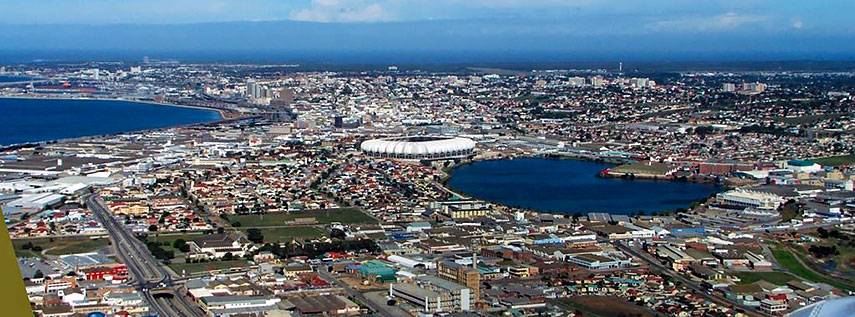New Port Elizabeth tug ‘Qunu’ delivered
News
New Port Elizabeth tug: the latest of Transnet National Ports Authority’s nine new powerful tugboats set sail from the Durban premises of contractor, Southern African Shipyards, on Thursday 7 July, destined for its new home at the port of Port Elizabeth. Qunu arrived safely in her new home port the following day, slightly ahead of the scheduled ETA. The tug was ceremonially launched as Qunu in May alongside a third tug, Cormorant, which is destined for the port of Saldanha. Qunu was named after the Eastern Cape home village of former President, the late Nelson Mandela.
Qunu is the second of two new Port Elizabeth tugs built for the bay area for this large-scale fleet replacement project. The first, Mvezo, named after the Eastern Cape birthplace of Mandela, was unveiled at the port in April by President Jacob Zuma. Valued at R1.4 billion, the nine-tug contract is the largest single contract TNPA has ever awarded to a South African company for the building of harbour craft. TNPA Chief Executive, Richard Vallihu, said after the tug’s ceremonial launch last year that the building of these tugs demonstrates that this country has the expertise to compete in the global shipbuilding industry and to use the maritime economy to unlock the economic potential of South Africa. This, he said, is in line with the government’s Operation Phakisa initiative. Qunu is to be handed over officially to the port in the coming weeks. Two tugs each will be allocated to the Ports of Durban, Richards Bay and Port Elizabeth, while Saldanha, which handles the largest carriers, will receive three tugs. Big Benefits The tug building project kicked off in August 2014 and five of the nine tugs are under construction simultaneously at any given time due to the project’s tight deadlines. TNPA programme manager Thandi Mehlo, Senior Marine Engineer, said TNPA had 29 tugs presently in service nationally, but the requirement for more powerful tugboats had increased in line with bigger commercial vessels calling at South African ports more frequently. “TNPA’s new fleet will include nine tugs that are 31 metres long with a 70 ton bollard pull. The older tugs have 32.5 to 40 ton pulls. “The increased bollard pull of these new generation tugs meets international standards and they also feature the latest global technology. The tugs have Voith Schneider propulsion which makes them highly manoeuvrable and able to change the direction and thrust almost instantaneously while guiding large vessels safely into our ports,” he said. Durban-based Southern African Shipyards, which owns and operates the largest shipyard in Southern Africa, also built TNPA’s previous 12 tugs. The company has 60 percent black ownership and its employees have a 12 percent stake in the company. The contract for the nine tugs was obtained through an open and transparent process, a TNPA spokesperson said. Subcontractors on the project include well-known multi-nationals such as Barloworld Equipment, Siemens, Voith Schneider, as well as local contractors such as Bradgary Marine Shopfitters. Southern Africa Shipyards CEO Prasheen Maharaj said his company had created a minimum of 500 direct and 3500 indirect jobs through the project. “We have also committed to ensuring that each tug has a minimum of 60% locally manufactured components, while partnering with international companies on the remaining aspects that cannot be manufactured here, for example the engines and propulsion units,” he said. Maharaj said the intention was to maximise local content and spread the benefits of the project to black suppliers, women and youth-owned businesses. Ultimately South Africa will achieve a socio-economic benefit of more than R800 million as a result of the Supplier Development Plan attached to the contract, he said. In addition a number of national and international training and development opportunities are being created for local employees. TNPA also has a large training programme in place for engineering and deck cadets to ensure that the vessels have skilled people in place to operate them.
(Source: Ports & Ships; Photo: Trevor Jones)